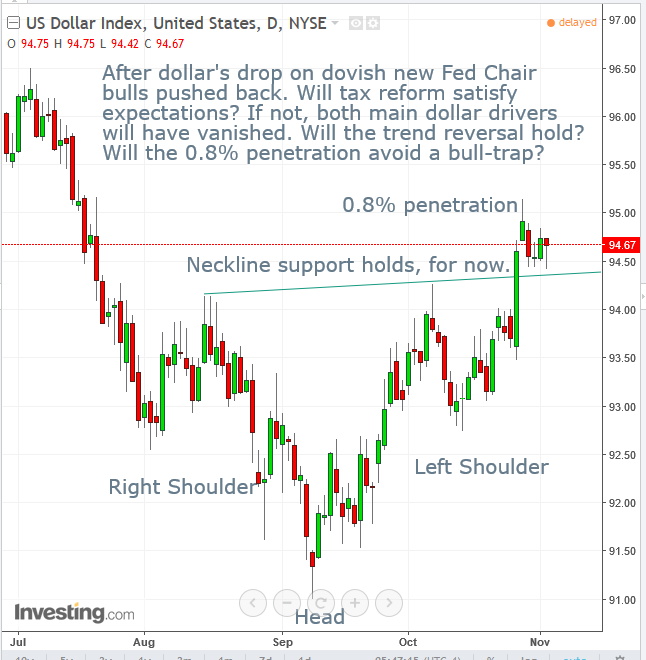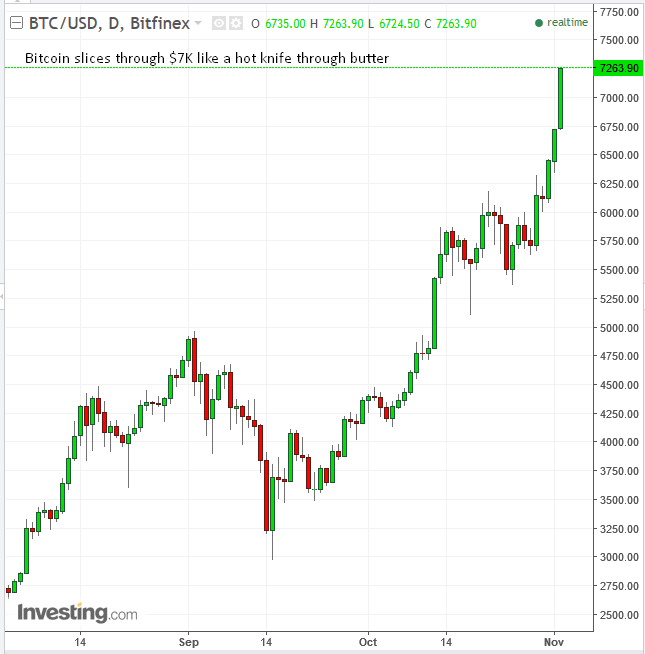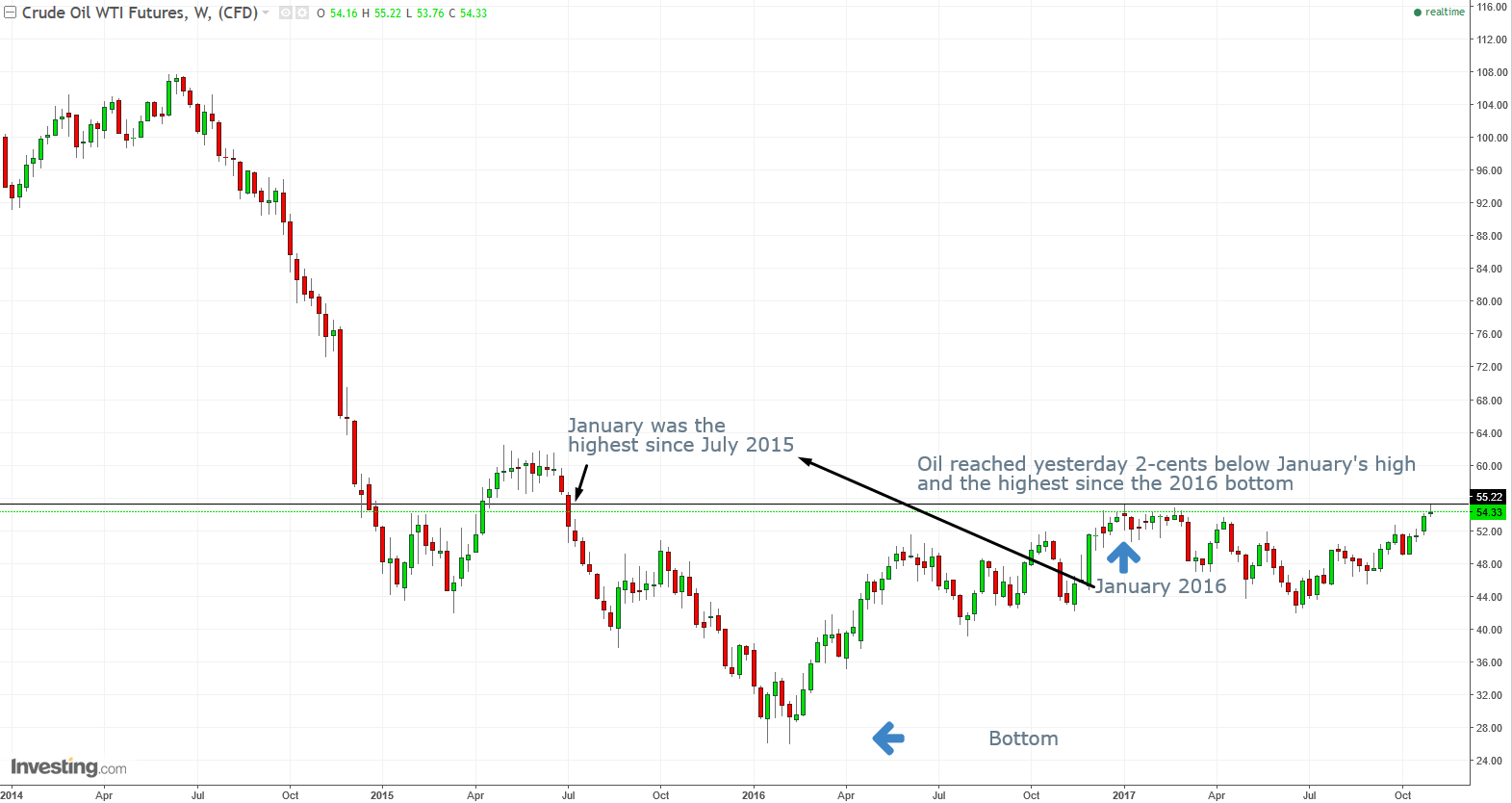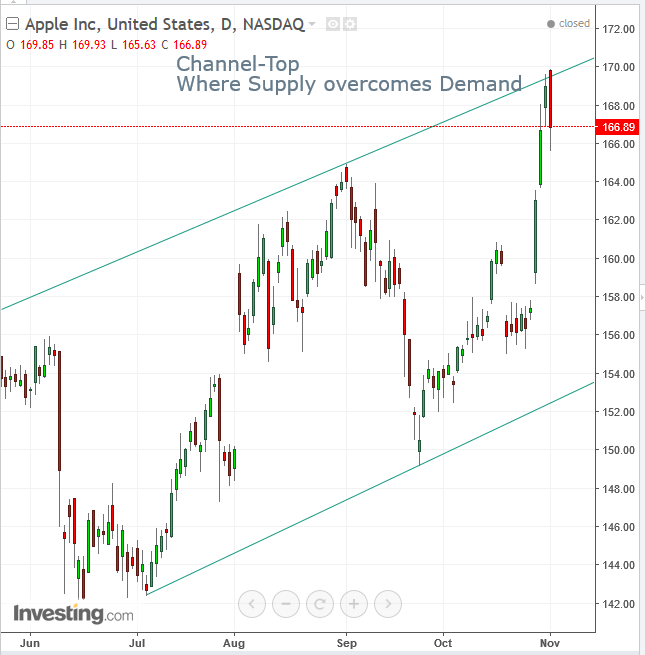Investing.com’s stocks of the week
by Pinchas Cohen
Key Events
Reportedly, per yesterday's Wall St. Journal, Jerome Powell is President Donald Trump’s choice to replace Janet Yellen as Fed Chair when her term expires in early February. Growth is picking up, inflation is headed in the right direction and unemployment is at a 16-year low, all of which should provide Powell with the right economic mix to keep gradually raising rates from their current historic lows.
On the other hand, should any of the aforementioned not continue in the right direction, Powell, who has served on the Fed's Board of Governors since 2012 and has consistently voted in agreement with Yellen, has little in the way of a policy arsenal with which to tweak the economy. As well, QE—formerly the backup plan—is now a non-starter as far as Republican lawmakers are concerned.
The official nomination announcement is scheduled for 15:00 EDT according to people familiar with the matter.
Global Financial Affairs

While the dollar fell on news of the dovish pick, consensus believes Powell will prove to be a boon for stocks.
To begin with, the more dovish the Fed Chair the slower the path to raising rates, which lets cheap money flow for a longer period. This would enable companies to expand and investors to borrow.
A secondary benefit for equity markets is Powell’s background in investment banking, which arguably makes him more sympathetic to the plight of the investment community in terms of the ways government regulation can limit profits. Could that be why Trump suddenly switched gears, moving away from his earlier, more hawkish front-runner John Taylor, whose economic policy views more closely echo Trump's own position regarding the need for higher interest rates?
An added reason equity investors may be comfortable with the choice is that Powell signals continuity and stability, something that's been jarringly absent from the political sphere since November of last year.
Another hot-button topic currently moving markets is tax reform, which seems to have become the main focus right now rather than corporate earnings or Friday’s Nonfarm Payrolls report. House Republican leaders plan to unveil a bill later today that would cut the corporate tax rate to 20 percent, at least in the initial stages of the proposal.
Because the dollar declined, the euro rose, which could hurt European exports, weighing on stocks. While European shares may have rallied initially on Powell being the likely next Fed chair—for the very reasons mentioned above—they've since drifted, perhaps because of the stronger euro. As well, the Stoxx Europe 600 remained flat, as lagging transportation sector shares offset outperforming real estate and telecom stocks.
Sterling advanced ahead of today's much anticipated BOE meeting, which markets expect will result in the first hike in over a decade.

Even with negative news about a variety of countries outlawing or placing stiff regulations on cryptocurrency mining and trading, this morning, boosted by the CME Group (NASDAQ:CME) announcement yesterday that the futures markets operator is planning to launch Bitcoin futures trading later this year, the digital currency hit $7,000, then blew past that record, its fourth consecutive day of gains.

Oil dropped, after yesterday registering an intraday high over $55 a barrel for the first time since January.
Up Ahead
- Trump begins an 11-day trip to Asia tomorrow, his first as President. Trade and security issues—particularly North Korea—will likely be in focus.
- The slew of tech mega-cap earnings releases will culminate with Apple's (NASDAQ:AAPL) results after today's close.

The consensus expectation for Apple's 4Q 2017 EPS is $1.87 on $51.17B in revenue. Apple has been struggling with production for its new flagship smartphone, the iPhone X. Estimates have also been revised lower repeatedly to adjust for perceived weaker-than-expected iPhone 8 sales. Production problems might lead to weaker numbers for the next two quarters. Still, investors appear to have disregarded the production news; the stock is near its all-time high.
Market Moves
Stocks
- The Stoxx Europe 600 Index dipped less than 0.05 percent as of 8:16 London time (2:16 EDT).
- The U.K.’s FTSE 100 declined less than 0.05 percent to its lowest point in more than a week.
- Germany’s DAX sank 0.1 percent.
- Japan’s Nikkei 225 climbed 0.5 percent to the highest in more than 21 years.
- The MSCI Asia Pacific Index jumped 0.1 percent to the highest in 10 years.
- The MSCI Emerging Markets Index rose less than 0.05 percent to the highest in more than two weeks.
- S&P 500 Futures decreased 0.1 percent to 2,572.00.
Currencies
- The Dollar Index declined less than 0.1 percent, paring a 0.35 percent earlier decline.
- The euro climbed 0.2 percent to $1.1638.
- The British pound rose 0.2 percent to $1.3265.
- The Japanese yen increased 0.1 percent to 114.11 per dollar.
Bonds
- The yield on 10-year Treasuries declined less than one basis point to 2.37 percent.
- Germany’s 10-year yield rose one basis point to 0.39 percent, the highest in a week.
- Britain’s 10-year yield climbed one basis point to 1.357 percent, the highest in a week.
- Japan’s 10-year yield fell one basis point to 0.055 percent, the lowest in four weeks.
Commodities
